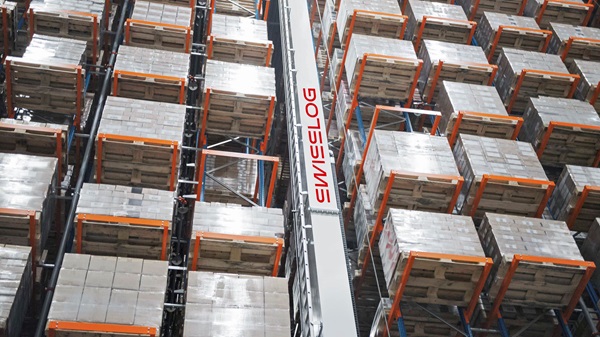In India’s journey towards becoming a cashless economy, two words and their impact played a significant role, ‘demonetization’ and ‘COVID-19’. One laid out the foundation of digital payments and another became the main source to build up the digital payments ecosystem.
Back in 2016, demonetization was a push from the government to convert India from a cash-based economy to a cashless economy. But India had witnessed digitization with steady progress way back in the 90s. With technologies like MICR, ATM, credit, debit cards followed by digital wallets, prepaid cards, recharge vouchers, etc., the payment industry was supported by new technologies and innovations. With the rise of Fintechs, the growth of the payment industry has seen many innovative solutions and methods to transact digitally. With astounding initiatives and innovations like, UPI, FASTags, NFC payments, QR codes, interoperable digital wallets, etc., Indian digital payment space certainly holds a promising future.
In the pandemic and the eventual lockdown, the digital payment sector has witnessed ups and downs. The new normal of COVID-19, social distancing, has influenced not only consumer behavior towards shopping but also how they pay for things. However, with the government’s initiative, local and new businesses like online storefronts utility bills, etc. are embracing digital payments and with that’, many digital platforms have seen recoveries. One such platform that has gained enormous popularity is contactless payments.
“Pandemic has created a big opportunity for contactless payments. As awareness about digital payments is spreading pan India, more number of people are actually interested in using contactless payments. They know what contactless payments are, how they work and they prefer to use contactless payments,” Says Rajesh Desai, CEO & MD, Lyra Network.
“While contactless payment is sitting comfortably with consumers, it is crucial for merchants to adapt to such methods, understand them, and cater to the customer needs,” he further added.
Today, more than 60% of Indians use mobile and online banking for financial transactions, and many of them want to continue with digital payments in the post-covid world. But still, four out of five payments are done by cash, and one of the main reasons is the lack of internet access. Though there are many external factors directly or indirectly affecting the growth of digital payments like government’s initiative, the pandemic, digital awareness campaigns by the payment solution providers, Fintechs, banks, and the government, etc., the mobile penetration and a robust digital payment infrastructure will allow for a continuous expansion in digitalization and digitization.
Many digital payment platforms have seen their all-time high during this pandemic, so as many digital payment solution providers. Lyra as a Fintech is also playing a pivotal role in making India’s journey towards the cashless economy.
“Lyra aims to be a ‘One stop solution for all payment requisites’. The backend infrastructure is Lyra’s key strength and the data centers at Mumbai and Bangalore are backbones. Our technology, ideas, and innovations are our greatest allies,” Rajesh added.
Lyra is working in the digital space providing transaction routing and payment processing solutions for more than a decade. For rural India, where there are connectivity and network issues Lyra is providing a connecting platform called ‘Lyra Connect’. With the active partnership with broadband companies, Telcos, several banking business correspondents, Lyra managed services are able to provide secure and stable connectivity and deliver banking and financial services.
Lyra has also introduced secure connections with intelligent platforms for Point Of Sales (POS) terminals with 2G/3G/4G/PSTN (and now Wi-Fi) technology under the fintech industry banner in India. With innovative solutions like Lyra NAC, a secure and powerful server that provides seamless connectivity and fast transaction gateway for payment processing without any glitch, Lyra payment switch, processing, and routing online payments with a higher success rate and faster processing time, Lyra provides efficient transaction services for all sectors.
Businesses are interested in the payment solutions that require much cheaper and less infrastructure to accept online payments. Payment processing industry and payment service providers are launching and researching the products/ services that will change customer service to more on a personal level. For a long time, banks have dominated the finance industry but with the rise of financial institutes, neo banking, and Fintechs, financial services have become more accessible. Now that there is a mobile app for literally everything, all the services are becoming more personalized and customized.
Soon in the future, the payment space will take more advanced and revolutionary routes. We can witness the development of blockchain payments, payments initiated by voice, biometrics and social media accounts, cryptocurrencies, cloud-based payments, AI, ML, IoT enabled payments, and many more innovative methods.
But payment space includes more than just payment methods, in the coming years, there will be interesting development on the side of digital payment solution providers, as they understand their role in the payment value chain and evolve their innovations, infrastructure, security, interoperability with the trends and the government’s regulatory regime.
Though due to the uncertainty caused by the pandemic have increased the demand for cash, more people are now shifting towards using contactless payments. In a developing country like India, though financial inclusion has provided an opportunity to adapt to digital payments, the unbanked and underbanked sectors in Indian provide the biggest opportunity for the growth of digital payments. It is safe to say, that for now, due to the pandemic, India’s journey to becoming a cashless economy from a cash-based economy is taking a temporary halt at the contactless economy.





 How to7 years ago
How to7 years ago


 More4 years ago
More4 years ago


 More6 years ago
More6 years ago


 Interview4 years ago
Interview4 years ago


 Other Internet Tech6 years ago
Other Internet Tech6 years ago


 More6 years ago
More6 years ago


 Business Ideas6 years ago
Business Ideas6 years ago













